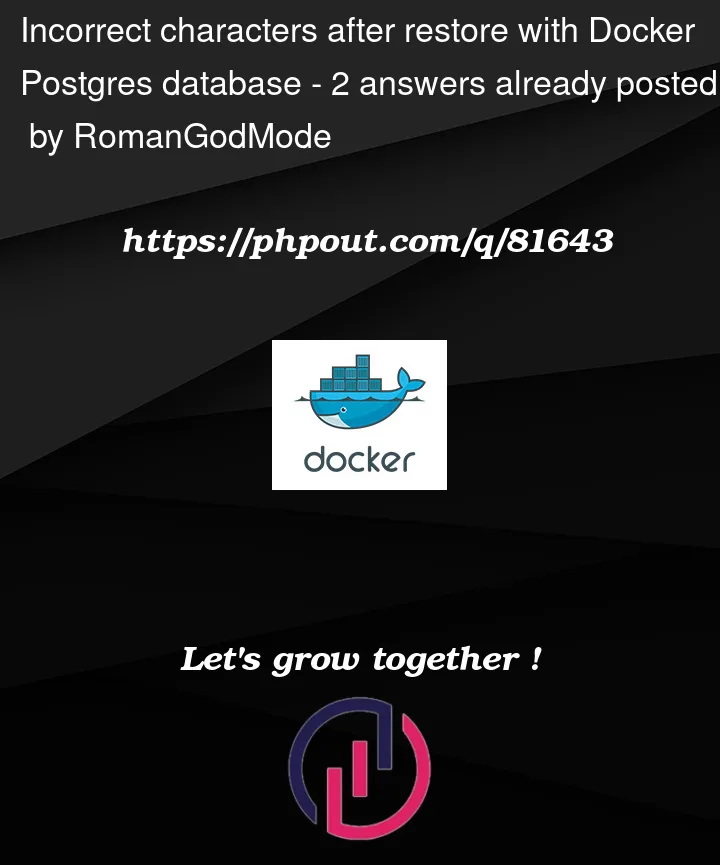I make a backup with the command
docker exec -t arcane-aio pg_dump arcane-aio -c -U admin > arcane_aio_db.sql
I restore the backup with the command
cat arcane_aio_db.sql | docker exec -i arcane-aio psql -U admin -d arcane-aio
All is good, but all Russian symbols are replaced by "?".
The string value before the restore is Привет, hi!.
The string value after the restore of the backup is ??????, hi!.
I checked the encoding of the backup, the database before the backup, the database after the restore, and they are the same (en_US.utf8). Could it be that this encoding don’t support the Russian language?
We are using Windows.
After a change of the system encoding from Cyrillic to UTF-8,
the values in the data dump become correct.
But after the restore, we still see "?" instead of Russian symbols in the database.




2
Answers
the
catcommand uses your shell character encoding.Did you try running simply the first part:
I bet it also shows the ???.
You need to set the charset to the same encoding on both sides. You probably have UTF-8 on one side and some russian language on the other.
The pipe, that writes to file is binary and doesn’t care about the encoding, but
catdoes.You can check your encoding with
make sure it is UTF-8 on both sides and that should fix your issue.
** EDIT
a work-around is to do the backup and restore within the container:
if that works, then it’s an encoding issue between your docker container and local machine.
You can do the dump / restore within the container and copy the file in/out with
docker cpOn another thought, the SQL you ‘cat’ may contain quotes or $ or # or other characters that are problematic sent directly into a TTY.
So you may want to try this instead, to make sure the whole thing is quoted:
Since a
pg_dumpincludes instructions to set theclient_encodingcorrectly, the data in your target database will be correct. That is, unless the database encoding isSQL_ASCII, in which case you are lost anyway if you need Cyrillic characters.The problem must be with your client software or your terminal encoding.
To ascertain that the characters are correct in the database, connect with
psqland cast the string tobyteaso that you can see the bytes: